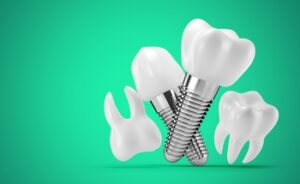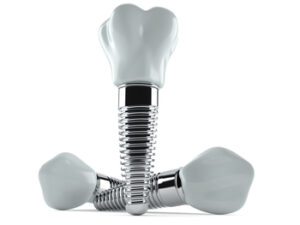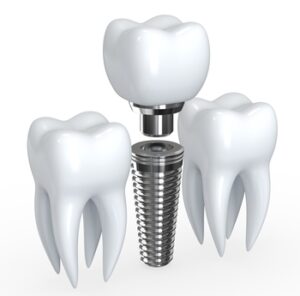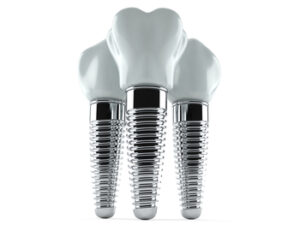In recent years, dental tourism has gained momentum, with one destination standing out for its cheap dental implants: Vietnam. A particular point of interest is the affordability of dental implant procedures compared to the seemingly extravagant costs in countries like Australia. This article aims to debunk myths surrounding the expensive nature of dental implants in Australia, shed light on the factors influencing implant costs, and explore the safety of opting for dental implants in Vietnam to help you reclaim your brilliant smile.
Myth Vs. Reality: The Expensive Cost Of Dental Implants In Australia

Myth 1: Dental Implants Are Unjustifiably Expensive In Australia
The cost of dental implants in Australia reflects a combination of factors, including the quality of materials, the expertise of dental professionals, and the regulatory environment. Australia maintains stringent standards, ensuring top-notch materials and highly qualified professionals. The perceived high cost corresponds to the assurance of receiving world-class treatment.
Myth 2: Dentists Charge Exorbitantly Because They Don’t Care
Dentists in Australia are dedicated professionals committed to patient well-being. The cost of dental implants encompasses various factors, such as the extensive education, training, and ongoing professional development that dentists undergo. Additionally, overhead expenses, including maintaining state-of-the-art clinics and adhering to strict hygiene standards, contribute to the overall cost. The commitment of Australian dentists to providing quality care is reflected in their comprehensive services.
Myth 4: Dentists Inflate Prices For Profit
Dental professionals in Australia adhere to ethical standards, and genuine factors influence the pricing of dental implants. The cost includes investments in ongoing education, advanced equipment, and maintaining a sterile environment. Profit margins are essential for sustaining a reputable practice and ensuring access to cutting-edge technology, benefitting patients in the long run.
By dispelling these myths, it becomes evident that the cost of dental implants in Australia reflects Australian dentists’ high standards of care and expertise.
Factors Influencing The Cost Of Dental Implants
Understanding the intricacies of dental implant costs is crucial for dispelling myths and making informed decisions. Several factors contribute to the overall expense of dental implant procedures.
 Material Costs
Material Costs
The type of material used for dental implants significantly influences the cost. High-quality materials, such as titanium posts, contribute to the durability and success of the implant. While materials may vary, the emphasis on quality in Australia justifies the associated costs.
Labour Costs
The expertise and experience of the dental professionals performing the surgery play a significant role in the overall cost. Extensive education, training, and expertise contribute to the skills necessary for successful implantation. In Australia, the cost reflects the value of the professionals providing the service.
Regulatory Environment
Stringent regulations in developed countries like Australia ensure patient safety and the quality of care. Compliance with these regulations requires additional investments in infrastructure and adherence to rigorous standards, influencing the overall cost of dental implants.
Technology And Equipment
Access to advanced dental technology and equipment is a crucial factor. Maintaining state-of-the-art diagnostics, planning, and implantation facilities increases the overall cost. Cutting-edge technology enhances precision and outcomes but requires continual investment.
Postoperative Care
Comprehensive postoperative care, including follow-up appointments and potential adjustments, is factored into the overall cost. Ensuring patients receive proper care after the procedure contributes to the success and longevity of dental implants.
Anaesthesia And Sedation
Depending on the complexity of the procedure, the type of anaesthesia or sedation used can affect costs. Tailoring anaesthesia to individual patient needs adds to the overall expense.
Clinic Reputation
Established and reputable clinics with a track record of successful implant procedures may charge higher fees. The clinic’s reputation often reflects the quality of services and patient satisfaction.
By considering these factors, prospective patients gain a deeper understanding of the rationale behind the cost of dental implants in Australia.
Dental Implant Vietnam: Safe Or Dangerous?

Local Dentist Expertise
The expertise of the dental professionals conducting the procedure is a critical factor. While cost savings may be a driving force, it is essential to verify the qualifications and experience of local dentists.
Regulatory Standards
The level of regulatory standards in the chosen destination must be thoroughly assessed. Lack of regulation or lax standards may compromise patient safety.
Technology And sterilisation
The use of up-to-date technology and adherence to strict sterilisation protocols are vital for a safe dental implant procedure.
Communication And Language
Effective communication is crucial for successful dental procedures. Miscommunication during preoperative consultations and postoperative care could lead to misunderstandings and potential complications.
Limited Recourse
Opting for dental implants overseas may limit your recourse in dissatisfaction, complications, or malpractice cases. Legal and regulatory frameworks may differ, making it challenging to seek compensation or resolution.
Quality Of Materials
The quality of materials used in dental implants varies globally. Clinics in Vietnam may not adhere to international standards for materials, leading to implant failure or other complications.
Long-Term Follow-Up
Dental implant procedures often require long-term follow-up and maintenance. Ensuring consistent and quality care over time is essential for the success of dental implants.
So Why Do Dental Treatments In Vietnam Attract Patients?
For many individuals seeking dental implant treatments, the allure of cost savings on the overall dental implant cost prompts exploration beyond their home countries. Vietnam, in particular, has emerged as a destination for affordable dental care. The following explores why dental implants in Vietnam attract people and delves into the economic factors contributing to the significant cost difference compared to Western countries.
Economic Disparities
As a developing country, Vietnam experiences lower living and operational costs than Western nations. This economic disparity translates into more affordable dental care, making dental implants in Vietnam attractive for those seeking cost-effective solutions.
Favourable Exchange Rates
Favourable exchange rates further amplify the cost savings for foreign patients. Currency conversion can significantly reduce the overall expense, making dental implant procedures in Vietnam a financially advantageous choice.
Postoperative Risks In Dental Implant Procedures
Despite the appeal of cost savings, individuals undergoing dental implant procedures, especially in overseas locations like Vietnam, should be cognisant of potential postoperative risks. Understanding these risks is crucial for informed decision-making.
Infection
Infections can occur after dental implant surgery. Proper sterilisation and adherence to hygiene protocols are essential to minimising this risk. Ensure that the dental clinic follows rigorous infection control measures.
Bleeding
Excessive bleeding is a potential risk post-surgery. Patients should be monitored closely during the initial recovery period, and dental professionals should promptly address any unusual bleeding.
Nerve Damage
Dental implant procedures involve working close to nerves. While complications are rare, nerve damage can occur, leading to numbness or tingling. Experienced dentists and careful surgical planning help mitigate this risk.
Implant Failure
Despite the advancements in dental technology, implant failure is a possibility. Factors such as inadequate osseointegration or poor implant placement can contribute to long-term issues. Regular follow-ups and adherence to postoperative care instructions are crucial.
Allergic Reactions
Some individuals may experience allergic reactions to materials used in dental implants. Discuss any known allergies with the dental team beforehand to prevent complications.
Swelling And Discomfort
Swelling and discomfort are common in the days following the procedure. However, persistent or severe swelling should be promptly addressed to rule out potential complications.
Prosthesis Issues
For procedures involving multiple implants or extensive restorations, issues with the prosthetic components may arise. Regular check-ups and maintenance are necessary to address any prosthesis-related concerns.
Sinus Issues (For Upper Jaw Implants)
Implants in the upper jaw may require a sinus lift, and complications can include sinus infections or perforation. Close monitoring and adherence to recommended aftercare minimise these risks.
What To Expect When Getting Dental Implants In Australia

Medical Diagnoses
The dentist will thoroughly examine the patient’s oral health during the initial consultation. This includes assessing the condition of the gums, existing teeth, and overall oral hygiene. The medical history is also reviewed to ensure suitability for the procedure.
Bone Structure Evaluation
The dentist may use advanced imaging techniques like X-rays to evaluate the patient’s bone structure. Sufficient bone density is crucial for successful implantation, and additional procedures, such as a bone graft, may be recommended if needed.
Customised Treatment Plan
Based on the assessment, the dentist will develop a personalised treatment plan. This includes determining the number of implants needed, the type of implant, and any additional procedures required for optimal outcomes.
Discussion Of Options
Patients can discuss available options, including materials used for implants and choosing between removable or fixed prosthetics. Clear communication ensures the patient is well-informed and comfortable with the chosen treatment path.
Surgical Procedure
The actual implantation involves a surgical procedure where titanium posts are securely placed into the jawbone. Local anaesthesia or sedation ensures a comfortable experience. The surgical precision and expertise of the dental team contribute to the procedure’s success.
Healing Period
After implant placement, a healing period is essential. This allows the implants to fuse with the jawbone—a process known as osseointegration. The duration varies but typically ranges from a few weeks to a few months.
Abutment Placement
Once the implants are securely integrated, abutments are attached to connect the implants and the prosthetic teeth. This is a minor outpatient procedure.
Impressions And Prosthetic Design
Impressions of the patient’s mouth are taken to create a custom prosthetic that fits seamlessly with existing teeth before placing dental implants. The colour, shape, and size are carefully considered for a natural appearance.
Permanent Prosthesis Placement
The final step involves attaching the permanent prosthetic to the abutments. The result is a functional and aesthetically pleasing set of replacement teeth.
Postoperative Care And Follow-Up
Postoperative care is crucial for monitoring healing and addressing any concerns. Patients are advised on oral hygiene practices and may have scheduled follow-up appointments to ensure the long-term success of the dental implants.
Maintenance And Oral Hygiene
Maintaining good oral hygiene is paramount for the longevity of dental implants. Regular dental check-ups, professional cleanings, and adherence to oral care recommendations contribute to long-term oral health.
Recognition Of Signs And Complications
Patients are educated on recognising signs of potential complications, such as infection or implant failure, and are encouraged to seek prompt professional assistance if any concerns arise.
Choosing dental implants in Australia ensures a high standard of care during the procedure and ongoing support for optimal oral health.
Red Flags To Avoid When Searching For A Dentist
Selecting the right dentist for your dental implant procedure is crucial to ensuring a safe and successful outcome. While many dental professionals uphold high standards, it’s essential to be vigilant and watch for red flags when searching for a dentist. Here are key warning signs that should prompt caution:

-
- Red Flag: Dentists who do not prominently display their qualifications or are hesitant to provide information about their training.
- Why It Matters: A skilled and qualified dentist should be transparent about their education, training, and relevant certifications.
Unsanitary Clinic Conditions
-
- Red Flag: Poor hygiene practices within the dental clinic, including dirty equipment and a visibly unclean environment.
- Why It Matters: Inadequate sanitation increases the risk of infections and complications during and after dental implant procedures.
Limited Or No References
-
- Red Flag: Difficulty obtaining patient references or lacking positive reviews online.
- Why It Matters: Patient testimonials and reviews provide insights into the dentist’s reputation and the overall patient experience.
Pressure Tactics And Up-Selling
-
- Red Flag: Dentists who employ aggressive sales tactics, push unnecessary treatments, or attempt to upsell services.
- Why It Matters: A reputable dentist should prioritise patient well-being over financial gain and provide honest recommendations.
Inadequate Communication
-
- Red Flag: Difficulty communicating with the dental team, unclear explanations of the procedure, or dismissive responses to questions.
- Why It Matters: Effective communication is essential for informed decision-making and postoperative care.
Unrealistic Promises
-
- Red Flag: Dentists who make unrealistic promises or guarantees regarding the success of the dental implant procedure.
- Why It Matters: Honest and experienced dentists will provide realistic expectations and discuss potential risks.
Inconsistent Treatment Plans
-
- Red Flag: Frequent changes or inconsistencies in the proposed treatment plan without clear explanations.
- Why It Matters: A well-defined and consistent treatment plan is crucial for successful dental implant procedures.
Limited Access To Technology
-
- Red Flag: Outdated or limited use of technology for diagnostics and treatment planning.
- Why It Matters: Advanced technology enhances precision and contributes to the success of dental implant procedures.
Unexplained Cost Fluctuations
-
- Red Flag: Lack of transparency regarding the breakdown of costs or sudden and unexplained fluctuations in the treatment estimate.
- Why It Matters: Transparent pricing ensures trust and helps patients understand the investment required for their dental implant procedure.
No Comprehensive Preoperative Evaluation
-
- Red Flag: Dentists who skip or minimise the importance of a thorough preoperative assessment.
- Why It Matters: A comprehensive evaluation is essential for identifying potential complications and ensuring the patient is a suitable candidate for dental implants.
Being vigilant about these red flags when selecting a dentist for your dental implant procedure can contribute to a positive and successful experience.
Frequently Asked Questions
What is the success rate of dental implant procedures?
Dental implant success rates are high, ranging from 95% to 98%. Success depends on patient health, proper implant placement, and postoperative care.
How long does the dental implant procedure take?
The duration varies based on individual cases. On average, the entire process can take several months, from implant placement to receiving the final restoration.
Is dental implant surgery painful?
Local anaesthesia is used during the surgery to ensure patients are comfortable and smooth. Postoperative discomfort is usually managed with prescribed medications.
How long do dental implants last?
With proper care and maintenance, dental implants can last a lifetime. Regular dental check-ups and good oral hygiene practices contribute to longevity.
Are there alternatives to dental implants?
Yes, alternatives include bridges and dentures. However, dental implants offer a more permanent and natural solution for tooth replacement.
Can I travel immediately after getting dental implants?
It’s advisable to avoid extensive travel immediately after surgery. Follow your dentist’s recommendations for postoperative care and rest.
How much do dental implants cost in Australia?
The cost varies based on the number of implants, materials used, and individual case complexities. It’s recommended to consult with a dentist for a personalised cost estimate.
Does insurance cover dental implants?
Some dental insurance plans may cover some of the cost, but coverage varies. Check with your insurance provider to understand your specific coverage.
Getting A High-Quality Replacement Tooth
The journey towards dental implants is significant in achieving restored oral health and a confident smile. Prioritising safety, transparency, and expertise is paramount. By staying informed, asking pertinent questions, and collaborating closely with qualified dental professionals, individuals can embark on their dental implant journey confidently and clearly.
Contact Dental 266, NSW, at (02) 9051 0600 to get your high-level dental treatment under the supervision of experienced dentists.
Note: Any surgical or invasive procedure carries risks. Before proceeding, you should seek a second opinion from an appropriately qualified health practitioner.
Sources
Adams, Lina. “Beware of Language Barriers, Dental Tourists Warned – Dentistry.” Dentistry.co.uk, 30 Aug. 2023, dentistry.co.uk/2023/08/24/beware-of-language-barriers-dental-tourists-warned.
Bhatiya, Rehan. “Understanding the Factors Influencing Dental Implants Cost.” Medium, 25 Aug. 2023, medium.com/@rehanbhatiya/understanding-the-factors-influencing-dental-implants-cost-79de6517a8da.
Bsdh, Laurie Magallan Rdh. “Dental Tourism: Making Patients Aware That the “Bargain” Could Be a Big Mistake.” Today’s RDH, 16 June 2023, www.todaysrdh.com/dental-tourism-making-patients-aware-that-the-bargain-could-be-a-big-mistake.
“Dental Implant Failure Rates and Associated Risk Factors.” PubMed, 1 Aug. 2005, pubmed.ncbi.nlm.nih.gov/16161741.
Dental Implant Surgery – Mayo Clinic. 29 Jan. 2019, www.mayoclinic.org/tests-procedures/dental-implant-surgery/about/pac-20384622.
Dental Tribune International. “DT News – International – Risks of Dental Tourism …” Dental Tribune International, 13 July 2017, www.dental-tribune.com/news/risks-of-dental-tourism-highlighted-by-ada.
Lamb, Sandra. “When Dental Implants Go Wrong.” AARP, 13 Nov. 2020, www.aarp.org/health/conditions-treatments/info-2020/dental-implants-danger.html.
Pai, Aditi. “Dental Implants: Five Myths Debunked.” India Today, 20 Dec. 2022, www.indiatoday.in/india-today-insight/story/dental-implants-five-myths-debunked-2311504-2022-12-20.
Ryu, Jenna. “The Biggest Red Flags to Watch Out for at the Dentist.” SELF, 19 Sept. 2023, www.self.com/story/dentist-red-flags.
Tanner, A. C. R., et al. “Dental Implant Infections.” Clinical Infectious Diseases, vol. 25, no. s2, Sept. 1997, pp. S213–17. https://doi.org/10.1086/516243.


 Material Costs
Material Costs



